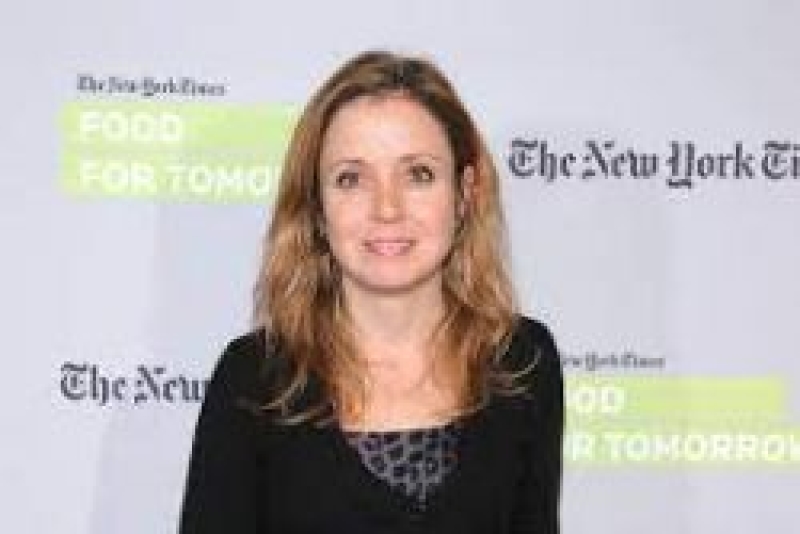- Puppet show enchants Children as Boi Mela comes alive on day 2 |
- DSCC Admin Salam’s drive to make South Dhaka a ‘clean city’ |
- 274 Taliban Dead, 55 Pakistan Troops Killed |
- Now 'open war' with Afghanistan after latest strikes |
- Dhaka's air quality fourth worst in world on Friday morning |
The New World Food Prize Laureate Is Using Microorganisms To Save Our Soils

Danielle Nierenberg
Danielle Nierenberg
When Mariangela Hungria, the winner of the 2025 World Food Prize, started college for microbiology, agriculture had just seen the Green Revolution, and scientists were focused on using artificial fertilizers to feed a growing population. But she didn’t think that was the way only forward.
Dr. Hungria knew that microorganisms could help achieve nitrogen fixation and better soil-health. She knew that biological fertilizers can help feed the world. In other words, she’s been a champion of regenerative agriculture before that term was even widely used!
The World Food Prize is a prestigious honor that recognizes her lifetime of work that’s literally changed agronomics from the ground up. And today, she’s also the guest on the 500th episode of our podcast, Food Talk. (We like to think that’s somewhat of an honor, too!)
But as a young scientist in the 1970s and 1980s, she faced significant pushback from the mostly male scientific establishment that believed chemicals were the only option.
“It's not easy to start your career when everybody says that you are not going to have a future,” Dr. Hungria says on the podcast. To prove that microorganisms had a vital role not just on smallholder farms or organic operations but within large-scale, high-yield agriculture, “I had to change the way I was doing research.”
She began involving farmers as collaborators in the research process. As with her commitment to regenerative ag, she didn’t set out to be a trailblazer: She was just doing things the way she thought was right.
“People talk about participative science, and I say, ‘I was doing this a long time ago. I just didn’t know!’” she tells me. “Every research that I did, it was because a farmer came to me to talk about something. It was because a farmer came (to me) or I met a farmer in the field, and he told me what he wanted and what was happening, and that gave me ideas to do my work.”
And just as she set out to prove from the beginning, she has demonstrated that the positive results that come from regenerative practices can be scaled up to fit any size farm.
“The same technology, the same bacteria, that helps the small farmers also helps the big farmers,” she says. “We use the same in 1 hectare or in 100,000 hectares, so that’s really wonderful to work with something that’s usable for all.”
During our conversation, Dr. Hungria identified several barriers she continues to face in her work, and I think there are a few takeaways that the entire good food movement can learn from:
1. The regenerative agriculture movement cannot be overshadowed by competition and corporate interests.
Even when faced with data on the success of biological fertilizers, some farmers are still skeptical due to aggressive marketing from chemical fertilizer manufacturers, Dr. Hungria says. And occasionally, companies that do adopt biological fertilizers seem more interested in widely planted crops that are more profitable, rather than culturally relevant crops in local communities.
As Dr. Hungria explained, feeding the world can’t be a competition—which is also why she makes all her research and solutions available publicly for free.
2. We have to think creatively about how to earn people’s attention.
Dr. Hungria believes strongly in the power of scientific communication. But she’s frustrated, she says, by the experience of spending time preparing a concise online video explaining nuance and data—only for the video’s view count to be dwarfed by influencers spreading misinformation or changing the subject away from agriculture entirely.
3. The future of science has to be collaborative, inclusive, and egalitarian.
Dr. Hungria is candid about the challenges she faced and continues to face as a woman and a mother in a male-dominated scientific world.
“I had lots of problems because there were not many women,” she says. “And worse, I was a woman working with biologicals that nobody believed in, and with two daughters. I was very improbable to succeed in my career.”
But Dr. Hungria did succeed—and she’s worked for her entire career to rebuild a scientific field that’s less competitive and more participatory, collaborative, and focused on listening to others and appreciating diversity of ideas. This is the kind of approach we truly need to transform the food system!
She says, “I really think that the science of the future will be a female science.”
I hope Dr. Hungria’s work will inspire future generations of regenerative farmers, microbiologists, food advocates, and citizen eaters—and I also hope it’ll inspire us right now, in this generation, to take the action we desperately need to nurture our soils, nourish our bodies, and keep our planet alive.
And, you can listen to my full conversation with Dr. Hungria on the Food Talk podcast by CLICKING HERE or scrolling down in this newsletter.
(Danielle Nierenberg is the President of Food Tank and can be reached at danielle@foodtank.com)

